
Futaleufú: The Gem of Chilean Patagonia
Nestled in the heart of Chilean Patagonia, Futaleufú is a hidden treasure waiting to be discovered. This small town is renowned for its stunning natural beauty, with towering mountains, lush forests, and crystal-clear rivers. The name Futaleufú means 'Big River' in the indigenous Mapuche language, and the town lives up to its name with the Futaleufú River, one of the world's best whitewater rafting destinations. The river's turquoise waters and thrilling rapids attract adventure seekers from around the globe, offering an unforgettable experience for both beginners and seasoned rafters alike. Beyond rafting, Futaleufú is a paradise for outdoor enthusiasts. Hiking trails abound, leading to breathtaking viewpoints and serene glacial lakes. The surrounding national parks, such as Pumalín Park and Patagonia Park, offer ample opportunities for wildlife spotting, camping, and reconnecting with nature. Fishing enthusiasts will find the Futaleufú River teeming with trout and salmon, making it a prime spot for fly fishing. The town itself is charming, with a warm and welcoming atmosphere. Local culture is rich, with traditional Chilean cuisine and crafts available in quaint shops and restaurants. Futaleufú is also committed to sustainable tourism, ensuring that its natural beauty is preserved for future generations. Whether you're seeking adrenaline-pumping adventures or a peaceful retreat in nature, Futaleufú is a must-visit destination on your Chilean journey.
Local tips in Futaleufu
- Visit during the summer months (December to March) for the best weather and river conditions.
- Book rafting trips in advance, as they can fill up quickly during peak season.
- Pack layers and waterproof gear; weather can change rapidly in Patagonia.
- Try the local cuisine, especially the fresh trout and empanadas.
- Respect local customs and the natural environment; sustainable tourism is key in Futaleufú.
Futaleufú: The Gem of Chilean Patagonia
Nestled in the heart of Chilean Patagonia, Futaleufú is a hidden treasure waiting to be discovered. This small town is renowned for its stunning natural beauty, with towering mountains, lush forests, and crystal-clear rivers. The name Futaleufú means 'Big River' in the indigenous Mapuche language, and the town lives up to its name with the Futaleufú River, one of the world's best whitewater rafting destinations. The river's turquoise waters and thrilling rapids attract adventure seekers from around the globe, offering an unforgettable experience for both beginners and seasoned rafters alike. Beyond rafting, Futaleufú is a paradise for outdoor enthusiasts. Hiking trails abound, leading to breathtaking viewpoints and serene glacial lakes. The surrounding national parks, such as Pumalín Park and Patagonia Park, offer ample opportunities for wildlife spotting, camping, and reconnecting with nature. Fishing enthusiasts will find the Futaleufú River teeming with trout and salmon, making it a prime spot for fly fishing. The town itself is charming, with a warm and welcoming atmosphere. Local culture is rich, with traditional Chilean cuisine and crafts available in quaint shops and restaurants. Futaleufú is also committed to sustainable tourism, ensuring that its natural beauty is preserved for future generations. Whether you're seeking adrenaline-pumping adventures or a peaceful retreat in nature, Futaleufú is a must-visit destination on your Chilean journey.
When is the best time to go to Futaleufu?
Iconic landmarks you can’t miss
Parque Nacional Los Alerces
Discover ancient forests, pristine lakes, and breathtaking Patagonian landscapes in Los Alerces National Park, a UNESCO World Heritage site.
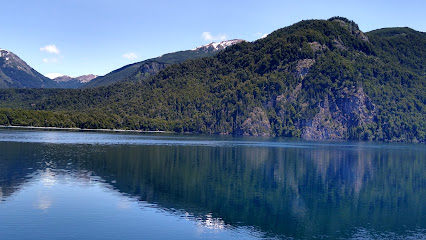
Pumalín National Park
Explore the breathtaking Pumalín National Park, a haven of lush forests, diverse wildlife, and stunning landscapes in Chile's Los Lagos region.
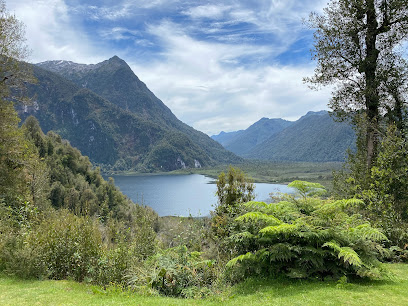
Futaleufu National Reserve
Explore the stunning landscapes and thrilling adventures of Futaleufú National Reserve, a nature lover's paradise in Los Lagos, Chile.
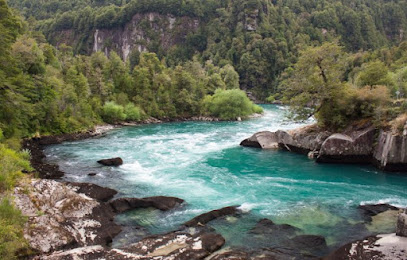
Laguna Espejo
Discover the serene beauty of Laguna Espejo, a tranquil lake surrounded by majestic mountains in Futaleufú, Los Lagos, Chile.
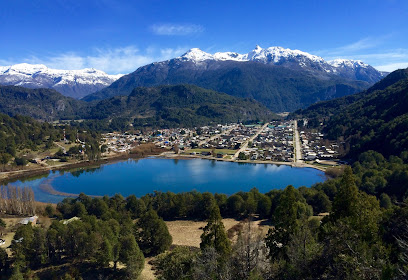
Bochinche Expediciones
Experience world-class rafting and Patagonian adventures with Futaleufú's trusted and passionate outdoor experts. Rafting, Kayaking, Trekking & more!
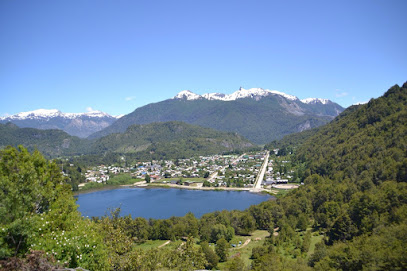
Rio Futaleufú Rafting
Experience thrilling whitewater rafting on Patagonia's legendary Futaleufú River, surrounded by stunning mountain scenery and pristine wilderness.
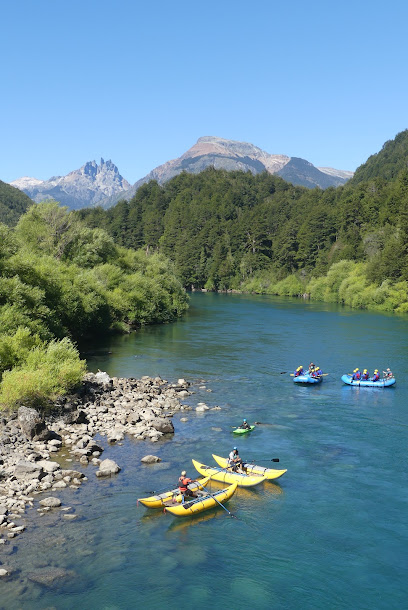
Plaza de Armas
Experience the charm of Patagonia in Futaleufú's central square, surrounded by stunning mountain views and local culture.
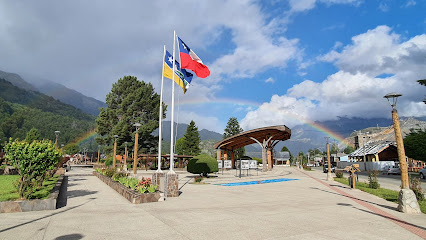
RAFTING FUTALEUFU
Experience the thrill of rafting on the stunning Futaleufu River in Chile's breathtaking Los Lagos region, a paradise for adventure enthusiasts.
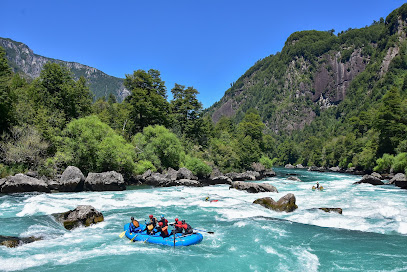
Piedra del Aguila
Discover the breathtaking views and serene beauty of Piedra del Aguila, the must-see observation deck in the heart of Los Lagos, Chile.
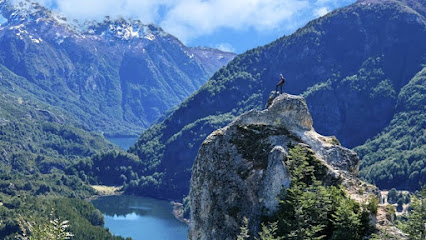
Hostería Futaleufú
Discover the beauty of Patagonia at Hostería Futaleufú, your cozy retreat for adventure and relaxation in Chile's stunning landscapes.
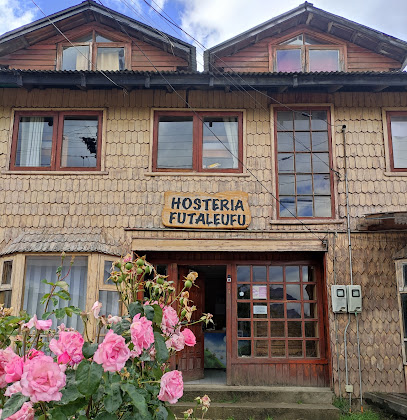
Plaza Futaleufu
Explore the serene landscapes of Plaza Futaleufu, a hidden gem in Los Lagos, Chile, offering breathtaking views and outdoor adventures for all.
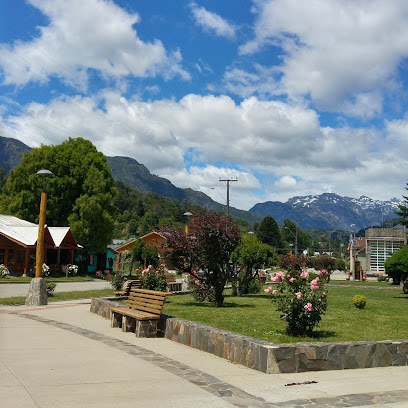
Futaleufú River
Explore the breathtaking Futaleufú River, a paradise for adventure seekers and nature lovers in Chile's stunning Patagonia region.
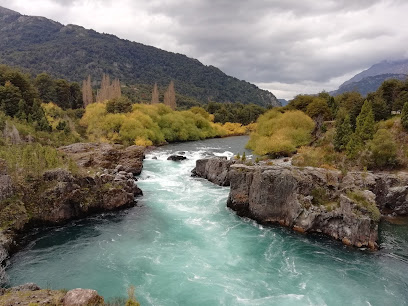
Patagonia Elements Tour Operador
Thrilling rafting adventures in Futaleufú, Patagonia, where nature's beauty meets exhilarating outdoor activities.
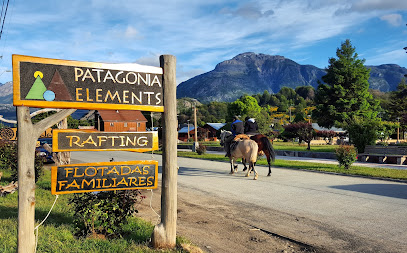
Playa Los Lolos
Explore Playa Los Lolos, a breathtaking beach in Futaleufú, Chile, perfect for relaxation, adventure, and stunning natural scenery.
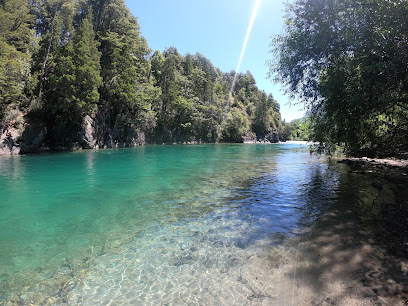
Hosteria Rio Grande
Discover the tranquility of Hosteria Rio Grande in Futaleufú, where comfort meets the stunning beauty of Los Lagos, Chile.

Unmissable attractions to see
Presa Futaleufú
Explore the breathtaking Presa Futaleufú in Chubut Province, Argentina - a stunning destination for nature lovers and adventure seekers.
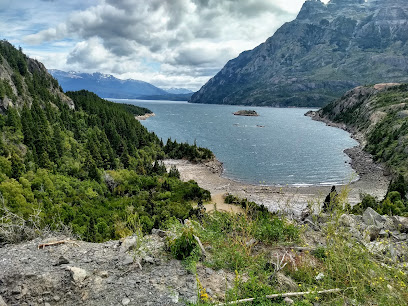
Piedra del Aguila
Discover the stunning beauty of Piedra del Aguila in Futaleufú, a premier observation deck offering breathtaking views of the Los Lagos region.
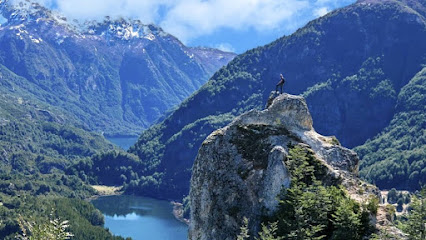
Plaza Futaleufu
Explore Plaza Futaleufu, a scenic park in Los Lagos, Chile, where nature meets community in a breathtaking landscape perfect for adventure and relaxation.
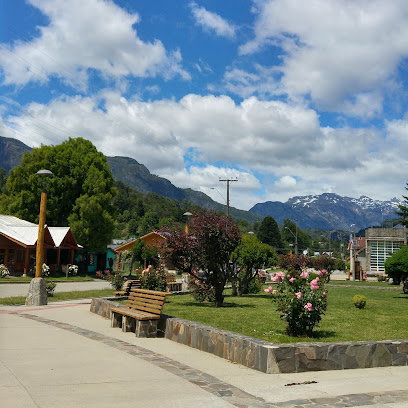
Playa Los Lolos
Experience the breathtaking beauty and tranquility of Playa Los Lolos, a hidden gem on the coast of Chile's Los Lagos region.
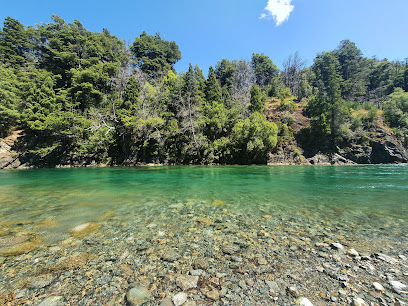
Administración, entrada reserva nacional Futaleufu
Explore the breathtaking landscapes of Futaleufú National Reserve—an adventure haven in the heart of Chile's Los Lagos region.
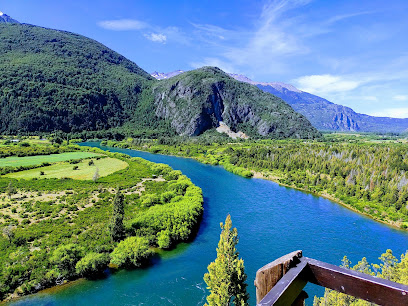
Laguna Pinilla
Experience the breathtaking landscapes and serene beauty of Laguna Pinilla, a hidden gem in Futaleufú, Chile, perfect for nature lovers and adventure seekers.
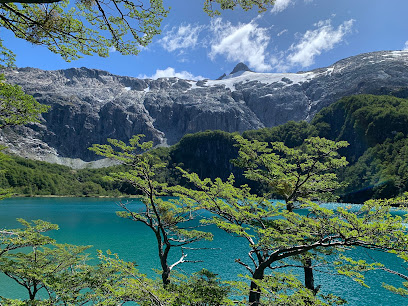
Rio Futaleufu rapids
Discover the breathtaking Rio Futaleufu, a paradise for adventure seekers with thrilling rapids and stunning landscapes in Chile's Los Lagos region.
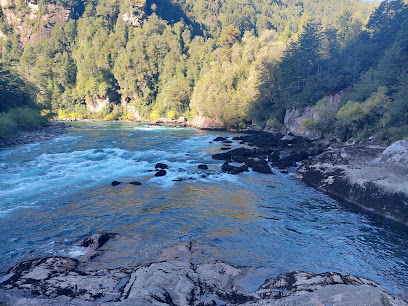
Mirador Del Condor
Experience the breathtaking views and diverse wildlife at Mirador Del Condor, a national reserve in the heart of Chile's Los Lagos region.
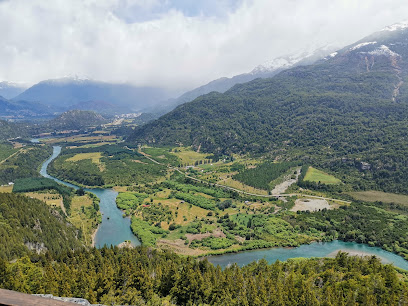
Mirador Pozón de los Reyes
Discover the stunning vistas of Mirador Pozón de los Reyes, a top tourist attraction in Futaleufú, Los Lagos, showcasing Chile's breathtaking natural beauty.
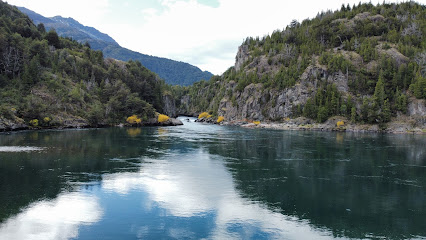
Laguna Toro Futaleufú
Explore the enchanting landscapes of Laguna Toro Futaleufú, a serene lagoon surrounded by majestic mountains and lush forests in Chile's Los Lagos region.
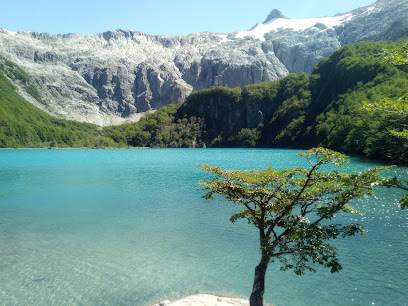
Playa Chucao
Experience the breathtaking beauty of Playa Chucao, a serene beach destination in Los Lagos, Chile, perfect for relaxation and adventure.
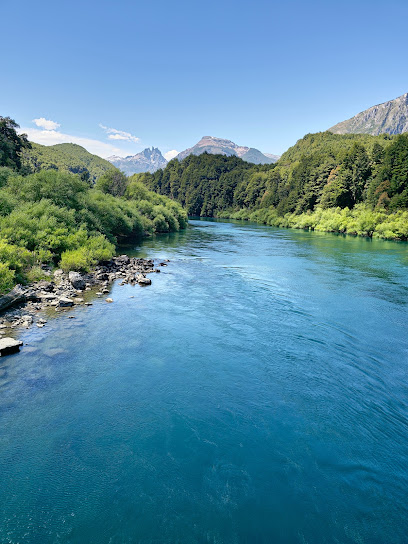
Sector Rural El Espolón
Explore the breathtaking landscapes and adventure opportunities at Sector Rural El Espolón, a hidden gem in Los Lagos, Chile.
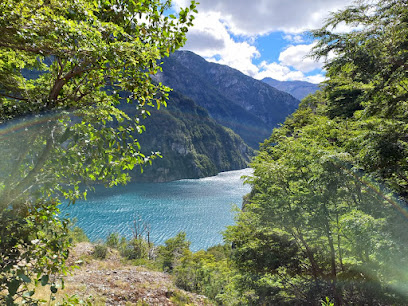
Mirador del diablo
Discover the breathtaking panoramic views of the Andes and the Futaleufú River at the stunning Mirador del Diablo in Chile's Los Lagos region.
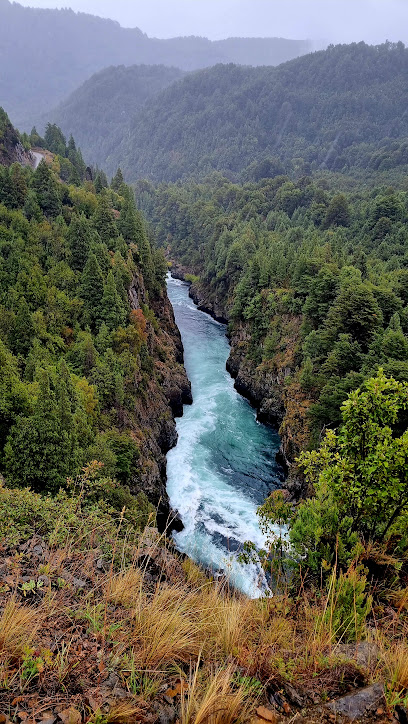
Pumallen Park
Explore the natural beauty and tranquility of Pumallen Park in Los Lagos, a perfect oasis for relaxation and outdoor adventures.
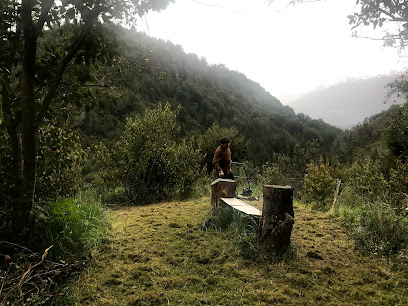
Mirador Cañadón del Diablo
Explore the breathtaking views and vibrant landscapes at Mirador Cañadón del Diablo, a must-see attraction in Futaleufú, Los Lagos, Chile.
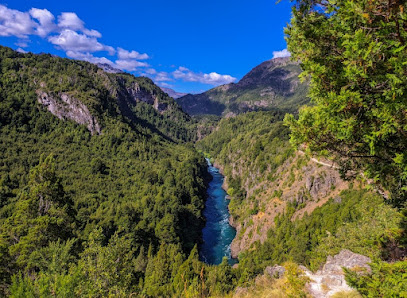
Essential places to dine
Rio Futaleufú Rafting
Discover unparalleled thrills at Rio Futaleufú Rafting - where breathtaking scenery meets heart-pounding adventures in Patagonia.
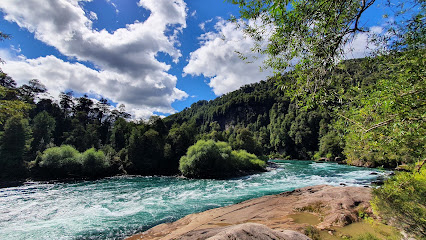
RAFTING FUTALEUFU
Discover thrilling white-water adventures at Rafting Futaleufu in Patagonia's stunning landscapes.
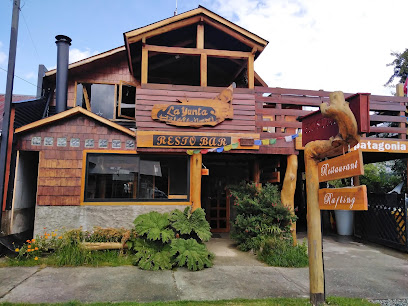
La Picá de los Colonos
Discover authentic Chilean cuisine at La Picá de los Colonos in Futaleufú – where tradition meets flavor.
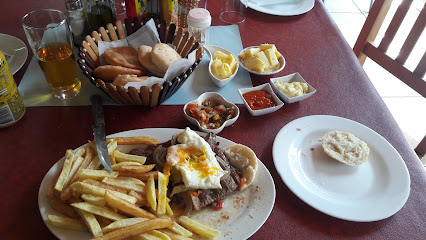
SurAndes Futaleufú
Experience exquisite local cuisine with stunning views at SurAndes Futaleufú - where every meal is a celebration of Chile's culinary heritage.
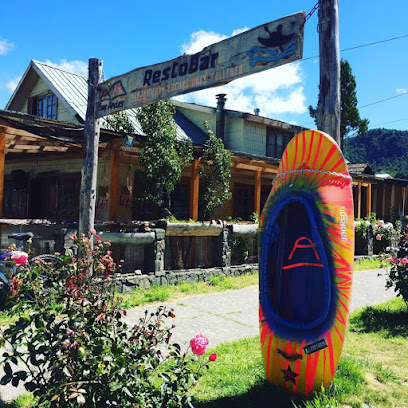
Antigua Casona Hotel - Restaurante Italiano
Experience authentic Italian cuisine at Antigua Casona Hotel - Restaurante Italiano in Futaleufú, where delightful flavors meet breathtaking scenery.
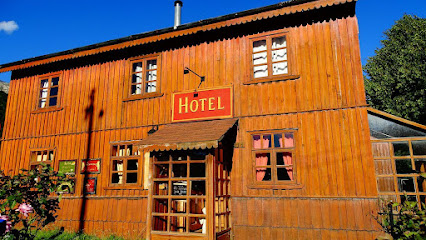
Hosteria Rio Grande
Discover Hosteria Rio Grande: A cozy restaurant and hotel in Futaleufú offering local cuisine amidst breathtaking Patagonian landscapes.

Rio Grande Restaurant
Savor the essence of Chilean cuisine at Rio Grande Restaurant in Futaleufú - where local flavors meet stunning views.
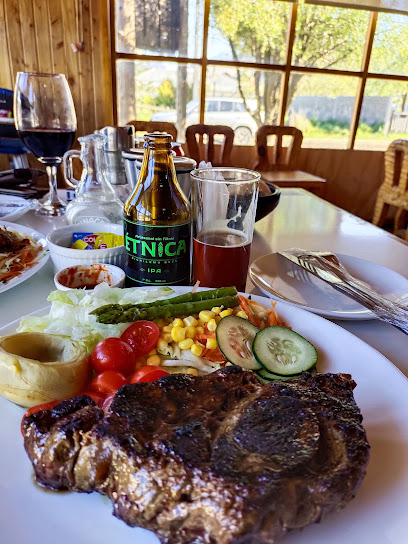
Hotel El Barranco
Experience comfort and adventure at Hotel El Barranco - your perfect retreat in Futaleufú's stunning Los Lagos region.
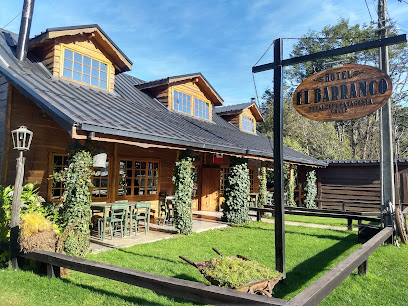
Restaurante Martin Pescador
Discover authentic Chilean cuisine amidst breathtaking landscapes at Restaurante Martin Pescador in Futaleufú.
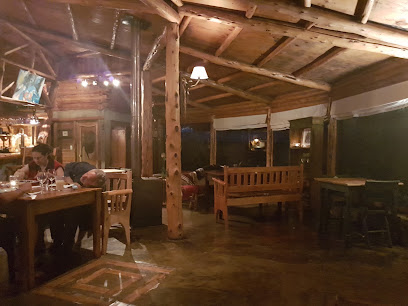
CERVECERIA ESCARCHA PATAGONIA
Discover locally crafted brews at Cervecería Escarcha Patagonia in breathtaking Futaleufú - a must-visit for every beer lover!
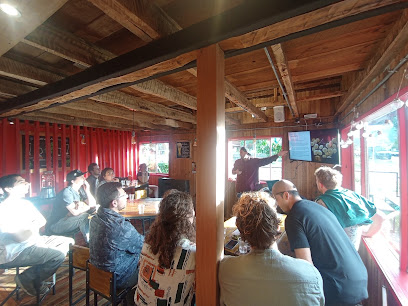
La Rosadita futaleufu
Discover La Rosadita in Futaleufú: where authentic Italian pizza meets breathtaking scenery in Los Lagos.
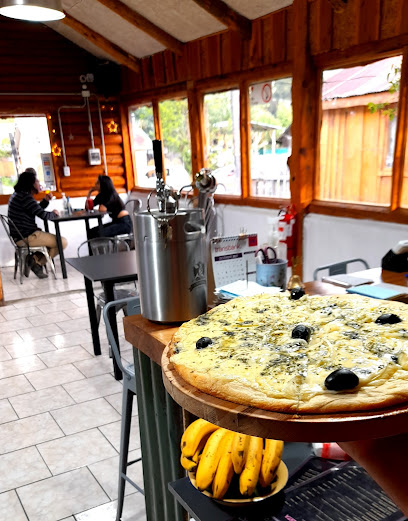
ECLYPZZA (formerly Pizzas de Fabio)
Discover ECLYPZZA in Futaleufú: Delight in artisanal pizzas made with fresh local ingredients amidst stunning landscapes.
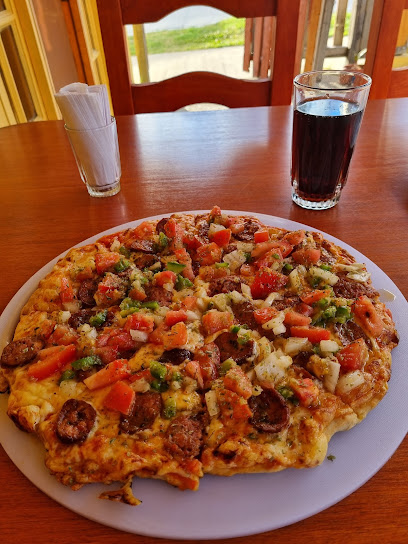
Madero Sándwich y Cerveza
Discover delightful sandwiches and local beers at Madero Sándwich y Cerveza in Futaleufú – an unmissable culinary experience amidst stunning landscapes.
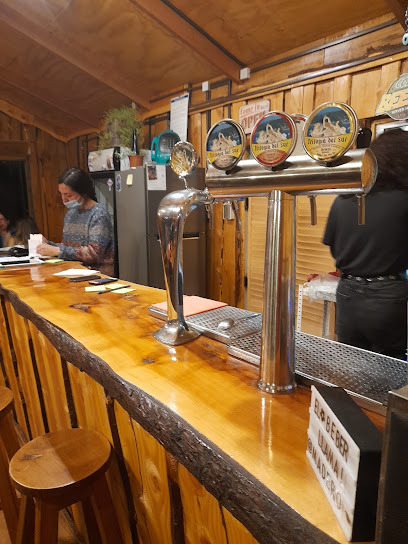
Restaurant Encuentro
Experience authentic Chilean cuisine at Restaurant Encuentro in scenic Futaleufú – where local flavors meet breathtaking landscapes.
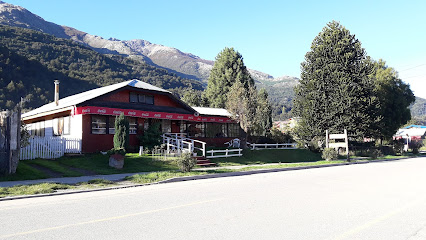
Rincon de Mama
Experience authentic Chilean flavors at Rincon de Mama in Futaleufú – where delicious food meets warm hospitality.
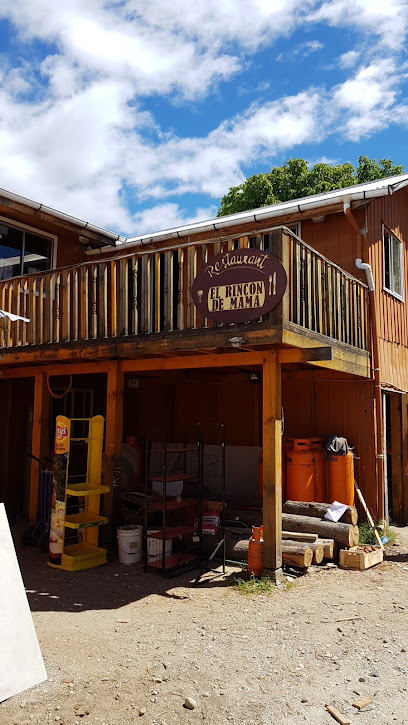
Markets, malls and hidden boutiques
Puerto ramirez
Explore Puerto Ramirez, the vibrant supermarket in Futaleufú, where local flavors and essential goods meet the spirit of Los Lagos.
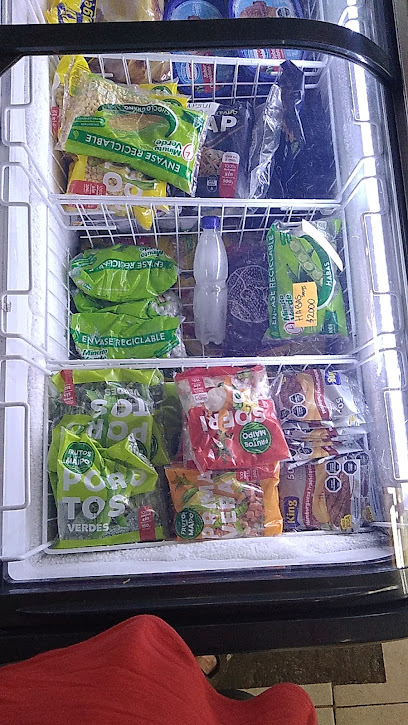
Comercial Cosas
Discover unique gifts and local treasures at Comercial Cosas in Futaleufú, your go-to shop for souvenirs and practical items in Los Lagos.
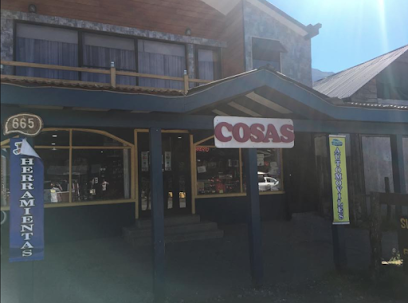
Artesanía Dayali
Explore Artesanía Dayali in Futaleufú for unique handcrafted souvenirs that reflect the rich culture and artistry of Los Lagos region.
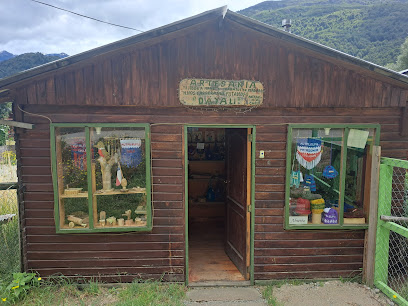
Of. Comercial Edelaysen
Experience the essence of Los Lagos at Of. Comercial Edelaysen, the perfect shopping destination for local crafts and regional delicacies.
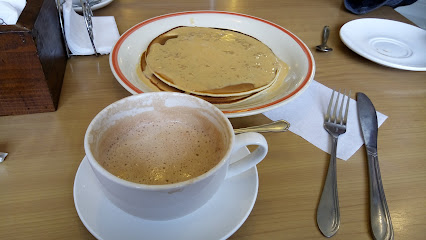
Patagonia Futa Mate
Discover the heart of Patagonia at Futa Mate, your go-to general store for local crafts and essential supplies in Los Lagos.
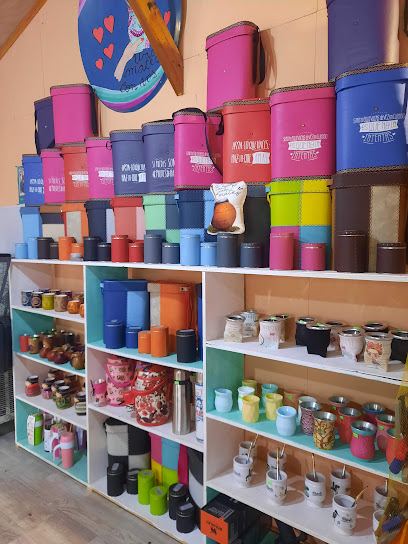
Dulce Hechicera
Explore the unique fashion offerings at Dulce Hechicera, a charming clothing store in Futaleufú celebrating local culture and style.
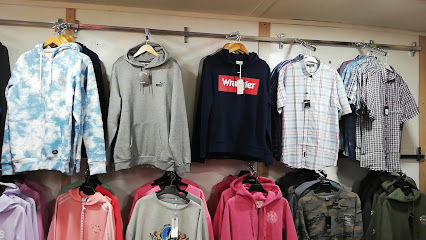
Comercial Patagonia BG
Discover local treasures and unique souvenirs at Comercial Patagonia BG, your go-to store in the stunning Futaleufú region of Los Lagos.
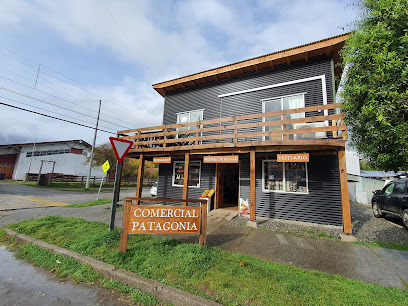
Los viajantes
Discover local fashion and unique styles at Los Viajantes, the must-visit clothing store in Futaleufú, Los Lagos, Chile.
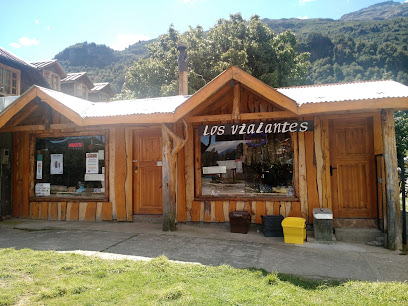
Tienda Ely
Explore Tienda Ely for unique clothing that captures the spirit of Futaleufú, blending tradition and modern style in scenic Los Lagos, Chile.
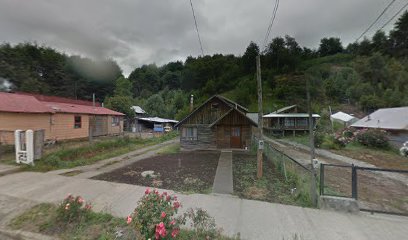
Costuras Futaleufú
Discover the heart of Futaleufú's craftsmanship at Costuras Futaleufú, a vibrant needlework shop showcasing local artistry and handmade textiles.
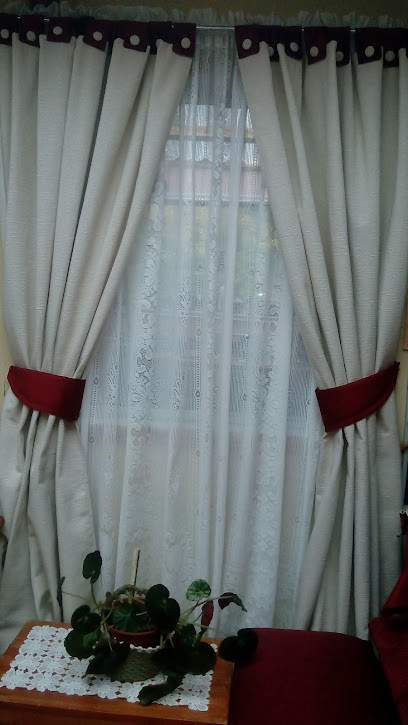
Usamefuta
Explore Usamefuta in Futaleufú, where fashion meets beauty in a stunning natural setting.
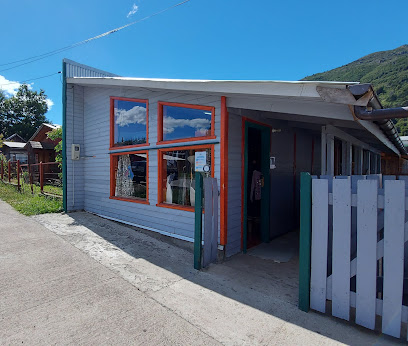
Tienda Anais
Explore Tienda Anais in Futaleufú for unique clothing that captures the essence of Chilean culture and style amidst stunning natural landscapes.
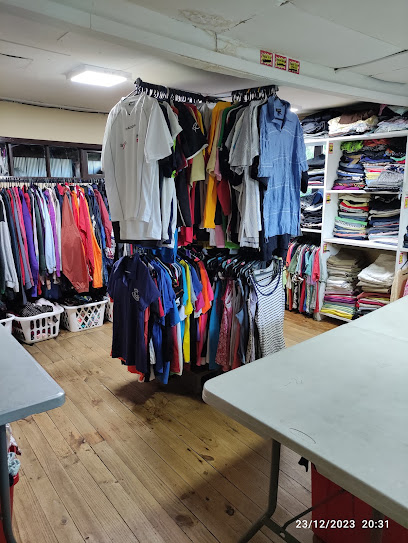
Tienda de ropa OUTLET
Explore Tienda de ropa OUTLET in Futaleufú for the best clothing deals amidst breathtaking natural beauty.
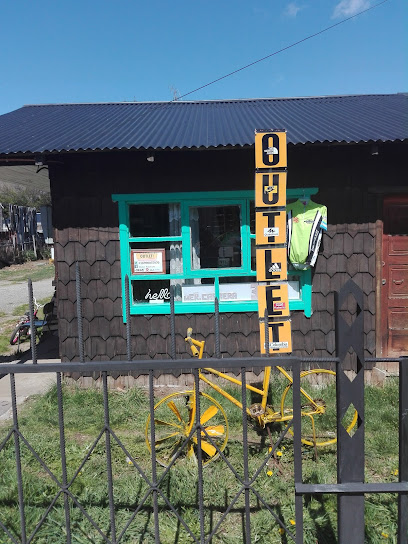
Tienda Lasen
Discover unique, locally crafted clothing at Tienda Lasen in Futaleufú, blending style with the breathtaking beauty of Los Lagos.

ZONA FRANCA
Uncover a treasure trove of electronics at ZONA FRANCA in Futaleufú – your go-to destination for all things tech in Los Lagos.
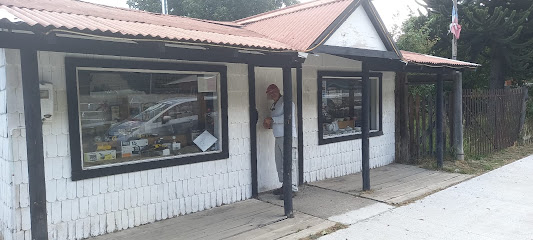
Essential bars & hidden hideouts
La Picá de los Colonos
Experience the authentic flavors of Chile at La Picá de los Colonos, a cozy restaurant in Futaleufú known for its delightful local cuisine.
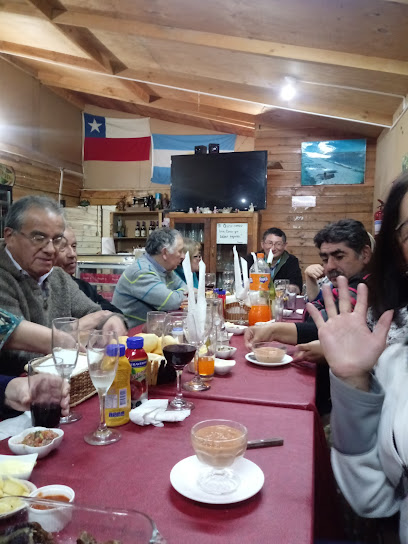
SurAndes Futaleufú
Experience authentic Chilean cuisine amidst the stunning landscapes of Futaleufú at SurAndes, where every meal is a journey into flavor.
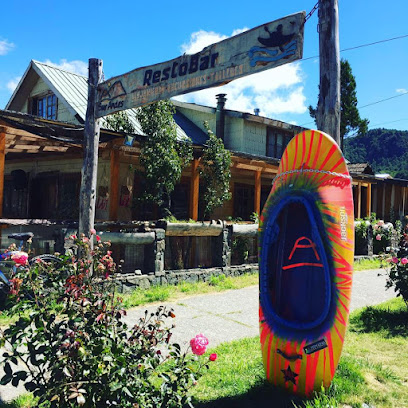
Hosteria Rio Grande
Experience the best of Chilean hospitality at Hosteria Rio Grande - a delightful restaurant and hotel in the heart of Futaleufú.

Rio Grande Restaurant
Discover the essence of Chilean cuisine at Rio Grande Restaurant in Futaleufú, where local flavors and stunning views create an unforgettable dining experience.
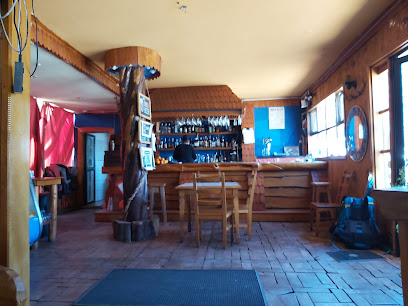
Hotel El Barranco
Experience the perfect blend of comfort and local cuisine at Hotel El Barranco in the heart of Chilean Patagonia.
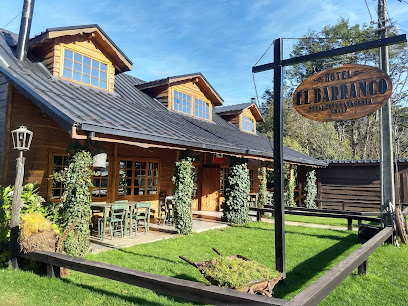
CERVECERIA ESCARCHA PATAGONIA
Discover the essence of Patagonian craft beer at Cervecería Escarcha Patagonia, where every sip tells a story amidst stunning mountain views.
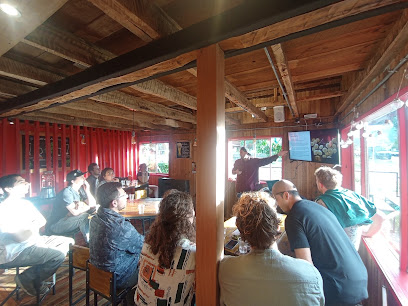
La Rosadita futaleufu
Experience the best of Futaleufú with authentic Italian pizza at La Rosadita, where every bite tells a delicious story.
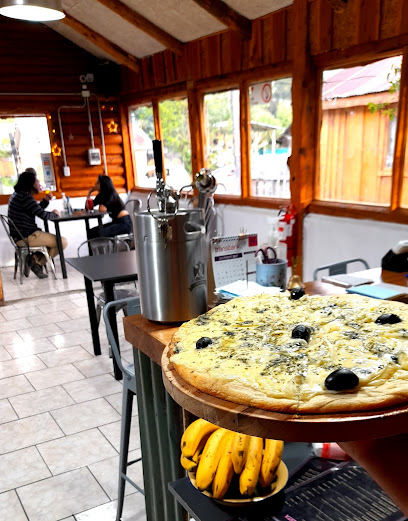
ECLYPZZA (formerly Pizzas de Fabio)
Savor the best artisanal pizzas in Futaleufú at ECLYPZZA, where local flavors meet a cozy atmosphere for unforgettable dining.
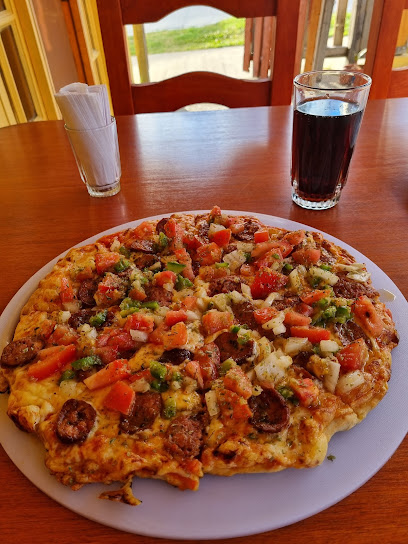
Madero Sándwich y Cerveza
Experience the flavors of Futaleufú at Madero Sándwich y Cerveza, where delicious sandwiches and craft beers come together in a cozy atmosphere.
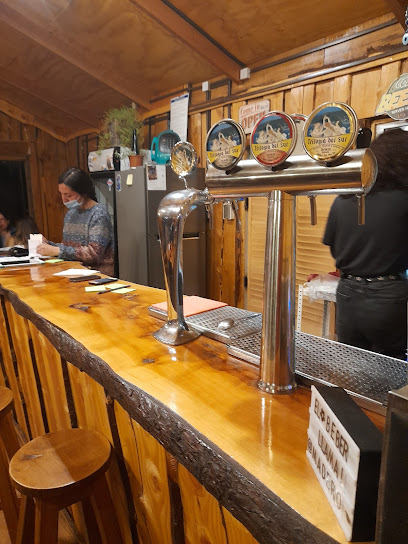
Restaurant Encuentro
Experience the rich flavors of Chilean cuisine at Restaurant Encuentro in Futaleufú, a culinary haven in the heart of Los Lagos region.
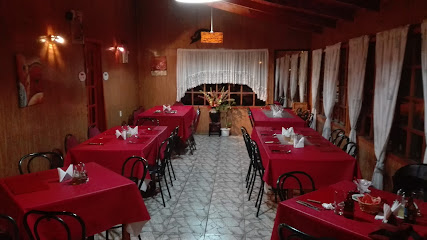
Rincon de Mama
Experience authentic Chilean cuisine at Rincon de Mama, a cozy restaurant in the heart of Futaleufú with delightful local flavors and stunning views.
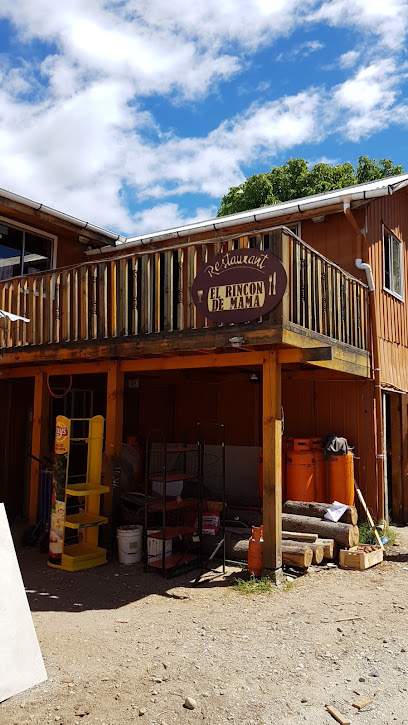
Restobar El Patagón
Discover the essence of Patagonia at Restobar El Patagón, where authentic flavors and a welcoming atmosphere unite.
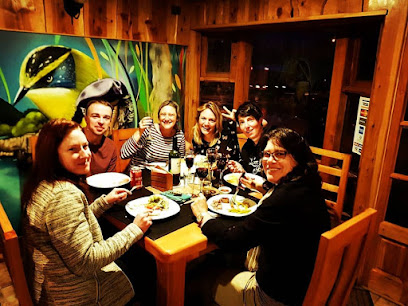
Café Huilque
Experience the rich flavors of artisanal coffee and delectable pastries at Café Huilque, a cozy espresso bar in the heart of Futaleufú.
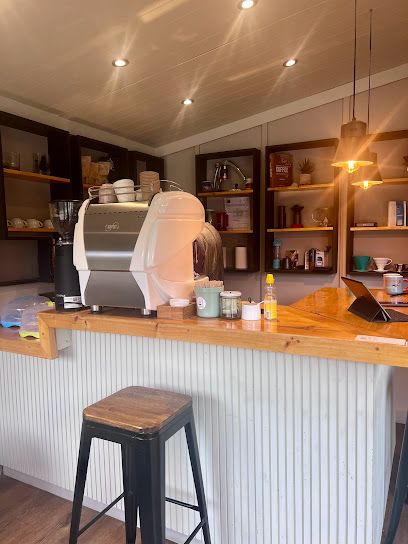
Restaurant Dani Y Hospedaje
Experience the authentic flavors of Futaleufú at Restaurant Dani Y Hospedaje, where local ingredients meet warm hospitality.
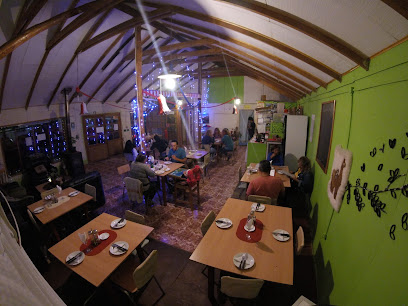
Local Phrases about Futaleufu
-
- HelloHola
[oh-lah] - GoodbyeAdiós
[ah-dee-ohs] - YesSí
[see] - NoNo
[noh] - Please/You're welcomePor favor
[por fah-vor] - Thank youGracias
[grah-see-ahs] - Excuse me/SorryPerdón
[pair-dohn] - How are you?¿Cómo estás?
[koh-moh ehs-tahs] - Fine. And you?Bien. ¿Y tú?
[bee-ehn. ee too] - Do you speak English?¿Hablas inglés?
[ah-blahs een-glays] - I don't understandNo entiendo
[noh ehn-tee-ehn-doh]
- HelloHola
-
- I'd like to see the menu, pleaseMe gustaría ver el menú, por favor
[may goo-stah-ree-ah behr ehl meh-noo, por fah-vor] - I don't eat meatNo como carne
[noh koh-moh kahr-neh] - Cheers!¡Salud!
[sah-lood] - I would like to pay, pleaseMe gustaría pagar, por favor
[may goo-stah-ree-ah pah-gahr, por fah-vor]
- I'd like to see the menu, pleaseMe gustaría ver el menú, por favor
-
- Help!¡Ayuda!
[ah-yoo-dah] - Go away!¡Vete!
[veh-teh] - Call the Police!¡Llama a la policía!
[yah-mah ah lah poh-lee-see-ah] - Call a doctor!¡Llama a un médico!
[yah-mah ah oon meh-dee-koh] - I'm lostEstoy perdido
[ehs-toy pair-dee-doh] - I'm illEstoy enfermo
[ehs-toy ehn-fehr-moh]
- Help!¡Ayuda!
-
- I'd like to buy...Me gustaría comprar...
[may goo-stah-ree-ah kohm-prahr...] - I'm just lookingSolo estoy mirando
[soh-loh ehs-toy mee-rahn-doh] - How much is it?¿Cuánto cuesta?
[kwan-toh kwehs-tah] - That's too expensiveEso es demasiado caro
[eh-soh ehs deh-mah-see-ah-doh kah-roh] - Can you lower the price?¿Puede bajar el precio?
[pweh-deh bah-har ehl pree-eh-so]
- I'd like to buy...Me gustaría comprar...
-
- What time is it?¿Qué hora es?
[keh oh-rah ehs] - It's one o'clockEs la una en punto
[ehs lah oo-nah ehn poon-toh] - Half past (10)Y media (10)
[ee meh-dee-ah (diez)] - MorningMañana
[mah-nyah-nah] - AfternoonTarde
[tahr-deh] - EveningNoche
[noh-cheh] - YesterdayAyer
[ah-yehr] - TodayHoy
[oy] - TomorrowMañana
[mah-nyah-nah] - 1Uno
[oo-noh] - 2Dos
[dohs] - 3Tres
[trehs] - 4Cuatro
[kwah-troh] - 5Cinco
[seen-koh] - 6Seis
[says] - 7Siete
[syeh-teh] - 8Ocho
[oh-choh] - 9Nueve
[nweh-veh] - 10Diez
[dee-ehs]
- What time is it?¿Qué hora es?
-
- Where's a/the...?¿Dónde está...?
[dohn-deh ehs-tah] - What's the address?¿Cuál es la dirección?
[kwal ehs lah dee-rehk-syon] - Can you show me (on the map)?¿Puedes mostrarme (en el mapa)?
[pweh-dehs mohs-trar-meh (ehn ehl mah-pah)] - When's the next (bus)?¿Cuándo es el próximo (autobús)?
[kwan-doh ehs ehl prohk-see-moh (ow-toh-booce)] - A ticket (to ....)Un boleto (a ...)
[oon boh-leh-toh (ah ...)]
- Where's a/the...?¿Dónde está...?
History of Futaleufu
-
The region of Futaleufú was originally inhabited by indigenous Mapuche and Tehuelche communities. These groups lived in harmony with the land, utilizing the abundant natural resources for hunting, fishing, and gathering. Their rich cultural traditions and deep knowledge of the local environment laid the groundwork for the area’s cultural heritage.
-
European exploration of the Futaleufú area began in the late 19th century. The rugged terrain and dense forests initially deterred settlers, but the beauty and potential of the region eventually attracted explorers. The first recorded European to venture into the area was the German naturalist, Hans Steffen, who conducted extensive surveys and mapping expeditions in the early 20th century.
-
The town of Futaleufú was officially founded in 1929. The name Futaleufú derives from the Mapuche language, meaning 'Big River,' a reference to the powerful Futaleufú River that runs through the area. Initial settlers were primarily of Chilean and European descent, drawn by the promise of fertile lands and abundant fresh water.
-
The Futaleufú River is a crucial part of the region’s history and culture. Known for its turquoise waters and challenging rapids, the river has been a vital resource for indigenous populations and settlers alike. In recent decades, it has gained international fame as one of the premier white-water rafting and kayaking destinations in the world, attracting adventurers from all corners of the globe.
-
In the early 2000s, the Chilean government and private companies proposed several hydroelectric projects along the Futaleufú River. These plans were met with fierce opposition from local residents, environmentalists, and international activists, who feared the projects would disrupt the natural ecosystem and the local way of life. After years of protests and legal battles, many of the proposed projects were halted or canceled, preserving the river’s natural state.
-
Futaleufú is home to several annual cultural festivals that celebrate the heritage and traditions of the region. The Fiesta de la Primavera (Spring Festival) and the Festival de la Cerveza (Beer Festival) are particularly notable, featuring traditional music, dance, food, and crafts. These events draw visitors from across Chile and beyond, providing a glimpse into the vibrant local culture.
-
In recent years, Futaleufú has seen significant development in tourism infrastructure, with new hotels, restaurants, and tour operators catering to the growing number of visitors. Despite these changes, the town has maintained its charm and commitment to sustainable tourism, ensuring that its natural beauty and cultural heritage are preserved for future generations.
Futaleufu Essentials
-
Futaleufu is located in the Los Lagos Region of Chile, near the border with Argentina. The nearest major airport is El Tepual Airport (PMC) in Puerto Montt, approximately 400 kilometers away. From Puerto Montt, you can take a domestic flight to Chaitén and then travel by road to Futaleufu. Alternatively, you can take a bus from Puerto Montt to Futaleufu, which offers a scenic route through the Chilean Patagonia. Another option is to cross the border from Argentina via the town of Esquel and travel by road.
-
Futaleufu is a small town, and many of its attractions are within walking distance. Taxis are available, but it's often easier to explore on foot or by renting a bicycle. For longer trips, local buses connect Futaleufu with nearby towns and villages. Renting a car can be convenient if you plan to explore the surrounding areas extensively. Note that some roads can be challenging, especially during winter months.
-
The official currency in Chile is the Chilean Peso (CLP). Credit cards are accepted in most hotels, restaurants, and shops in Futaleufu, but it is advisable to carry cash, especially for smaller establishments and rural areas. ATMs are available in town, but it's wise to withdraw sufficient cash before traveling, especially if you plan to venture into more remote areas.
-
Futaleufu is generally a safe destination for tourists, with a low crime rate. However, like any travel destination, it is important to take standard precautions. Avoid leaving your belongings unattended and be cautious when withdrawing money from ATMs. There are no specific high-crime areas targeting tourists, but it is always best to stay vigilant and aware of your surroundings.
-
In case of emergency, dial 133 for police assistance, 131 for medical emergencies, and 132 for fire emergencies. The local police station and medical facilities are available in Futaleufu. It is recommended to have travel insurance that covers medical emergencies. For minor health issues, there are pharmacies in town where you can purchase over-the-counter medications.
-
Fashion: Do dress in layers to accommodate the changing weather. Avoid wearing flashy or overly expensive clothing. Religion: Do respect local customs and traditions, although Futaleufu is not particularly religious. Public Transport: Do use public buses respectfully and offer your seat to elderly passengers. Don't eat or drink on public transport. Greetings: Do greet people with a handshake and maintain eye contact. It's polite to say 'Buenos días' (Good morning) or 'Buenas tardes' (Good afternoon). Eating & Drinking: Do try local delicacies and accept food offerings graciously. Don't refuse hospitality, as it may be considered impolite.
-
To experience Futaleufu like a local, visit the local markets where you can buy fresh produce and traditional Chilean goods. Engage with locals, as they are often friendly and willing to share stories about the town's history and culture. Don't miss the opportunity to explore the Futaleufu River, known for its world-class white-water rafting. For a unique experience, visit the nearby Lago Espolón and enjoy the stunning natural beauty of the area.
Trending Landmarks in Futaleufu
-
Parque Nacional Los Alerces
-
Pumalín National Park
-
Futaleufu National Reserve
-
Laguna Espejo
-
Bochinche Expediciones
-
Rio Futaleufú Rafting
-
Plaza de Armas
-
RAFTING FUTALEUFU
-
Piedra del Aguila
-
Hostería Futaleufú
-
Plaza Futaleufu
-
Futaleufú River
-
Patagonia Elements Tour Operador
-
Playa Los Lolos
-
Hosteria Rio Grande
Nearby Cities to Futaleufu
-
Things To Do in Bariloche
-
Things To Do in San Carlos de Bariloche
-
Things To Do in Osorno
-
Things To Do in Valdivia
-
Things To Do in Pucon
-
Things To Do in Temuco
-
Things To Do in Concepción
-
Things To Do in El Calafate
-
Things To Do in Curicó
-
Things To Do in Puerto Natales
-
Things To Do in San Rafael
-
Things To Do in Rancagua
-
Things To Do in Santiago
-
Things To Do in Punta Arenas
-
Things To Do in Valparaíso










